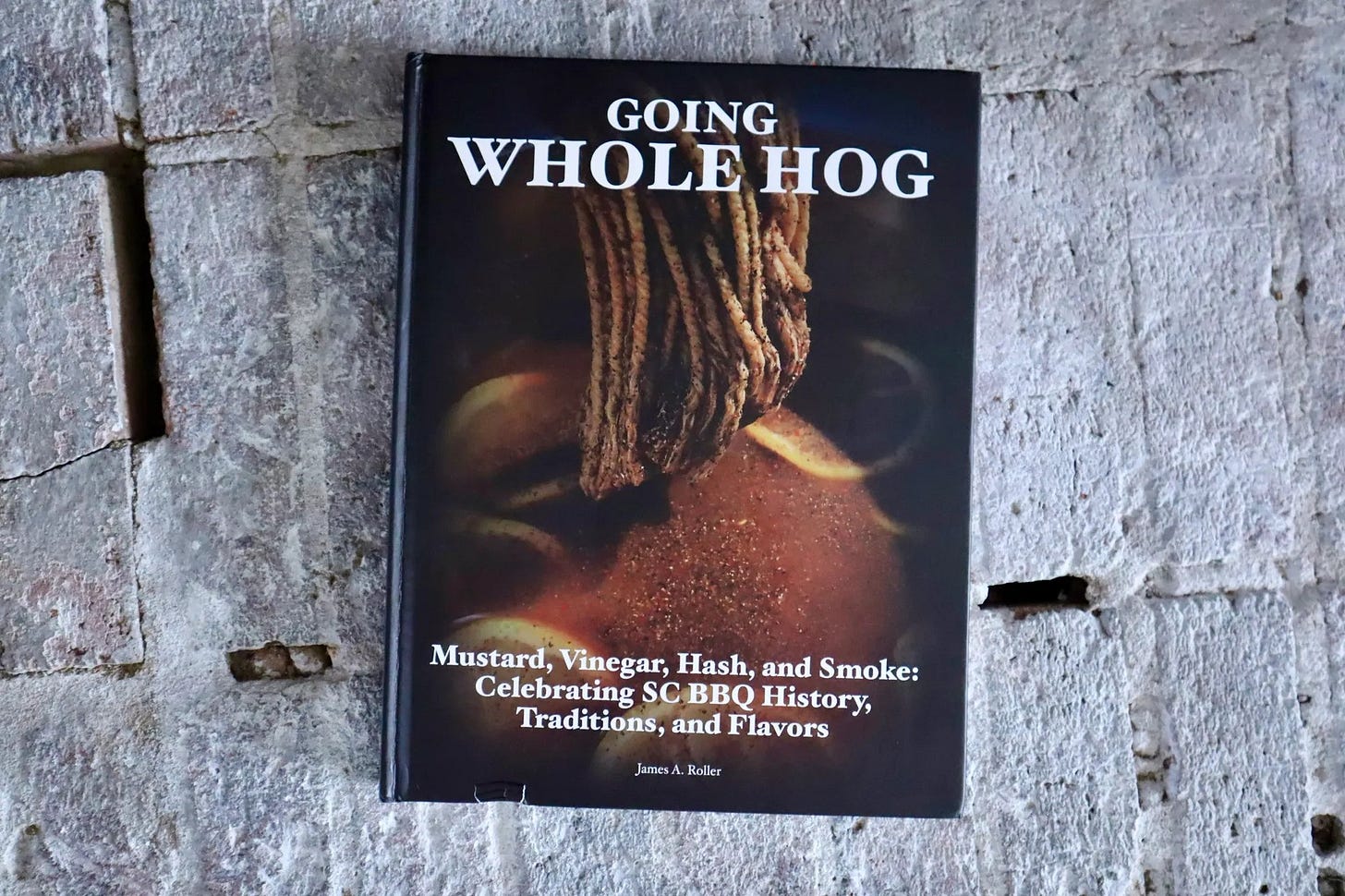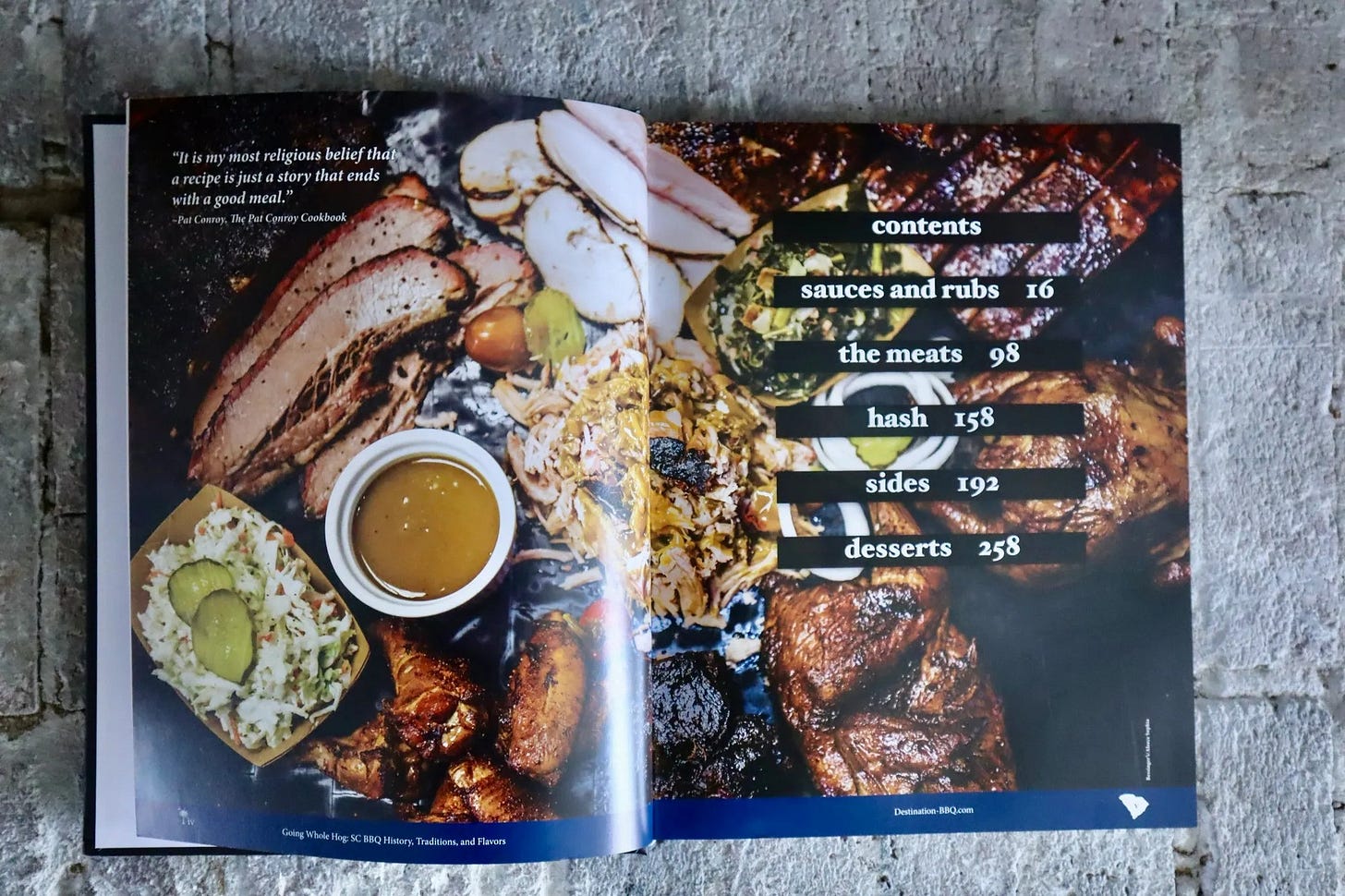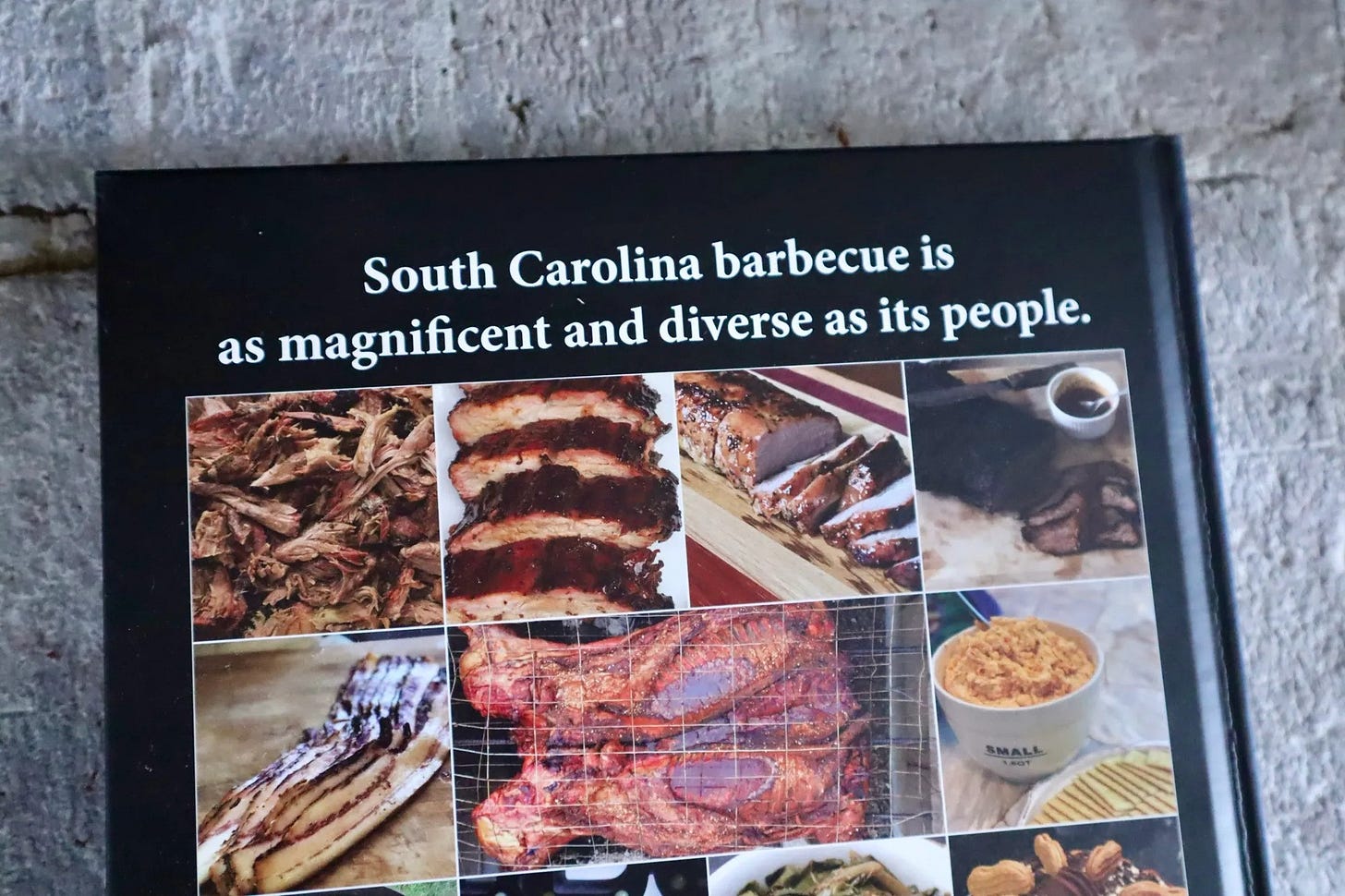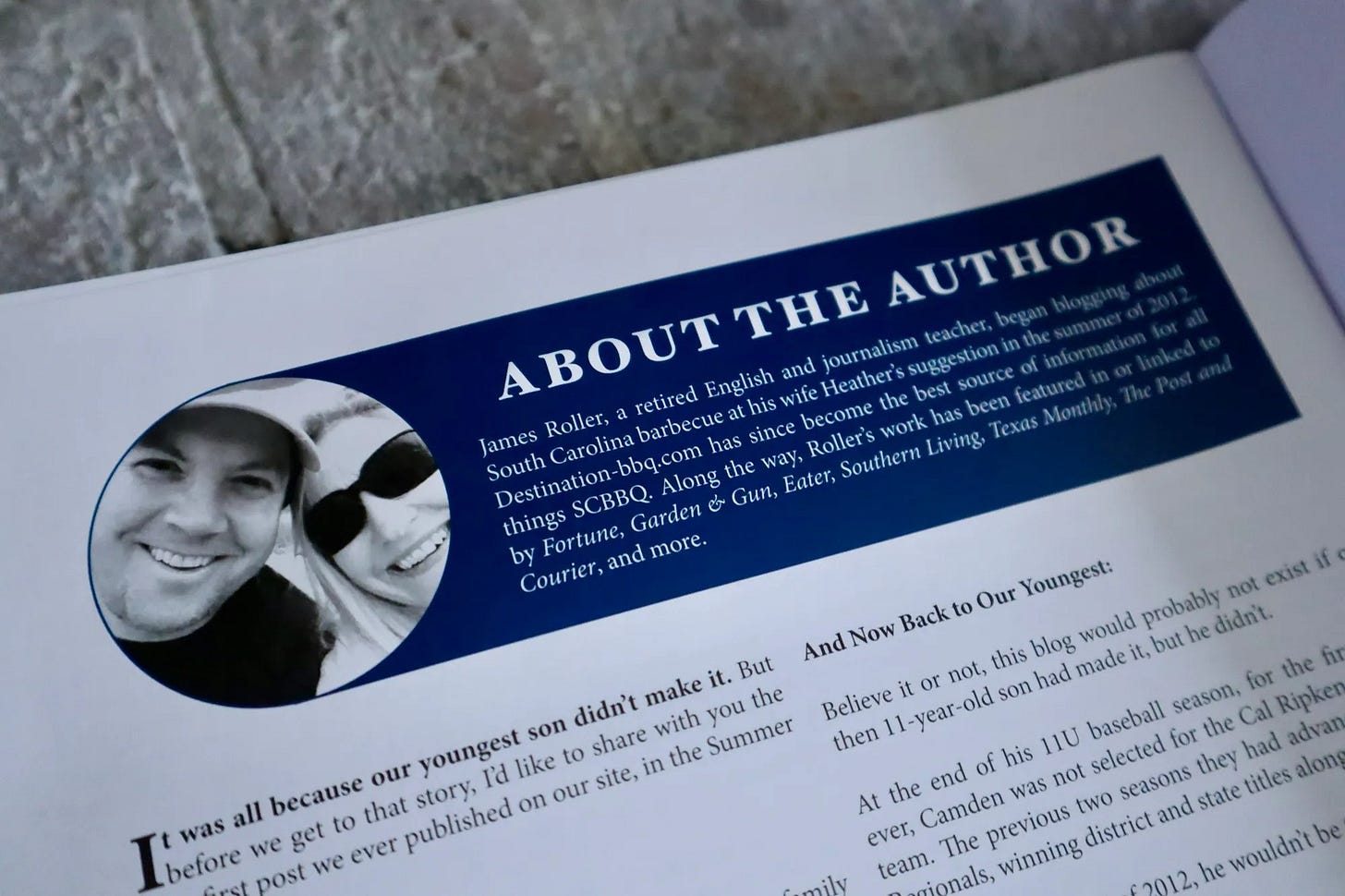Going Whole Hog Is a Celebration of SC BBQ
This new 300-page barbecue book is impressive in its scope of South Carolina barbecue, with tons of recipes and interviews.
This week’s guest article is written by Monk, a native of North Carolina and co-founder of the Barbecue Bros blog. Along with his friends and fellow Barbecue Bros Speedy and Rudy, Monk has traveled around eating, rating, ranking, and reviewing barbecue joints since 2012. If you would like to write a guest article for The Smoke Sheet, please get in touch.
“Let’s be clear from the start: I did not write this book; I assembled it,” writes author James A. Roller at the beginning of Going Whole Hog, an impressive new BBQ book that should be on your radar. And that’s definitely the right way of approaching this book of all things South Carolina Barbecue, subtitled Mustard, Vinegar, Hash, and Smoke: Celebrating SC BBQ History Traditions, and Flavors.
In it, Roller collects recipes from a variety of sources and intersperses them with interviews and South Carolina barbecue history, where he cites sources including Lake High, Robert F. Moss, Adrian Miller, Michael Twitty, and Howard Conyers, among several others.
The recipes in Going Whole Hog more or less follow what you’d expect from a barbecue recipe book, starting with sauces and rubs before getting into the meats and sides and ending with desserts. Where it differs from the normal book is there is a full chapter dedicated to over 20 recipes of hash, which is, of course, South Carolina’s definitive contribution to the barbecue world.
The recipes themselves come from a variety of sources: historic recipes, reader-submitted recipes, and some from pitmasters of current SC barbecue joints, including Home Team BBQ, Swig & Swine, Lewis Barbecue, Melvin’s, and Bessinger’s. Each has a story behind it, and this comprises the bulk of the book.
The book starts off with a concise history of barbecue in the United States and repeats the claim of fellow South Carolinian Lake High that South Carolina was the birthplace of the foodway. (I’ll let others debate whether that is indeed true.)
It then dives into the role of Black pitmasters during slavery through antebellum times, which Roller states he included at the urging of Howard Conyers, among others. I applaud Roller for including this and not avoiding what can oftentimes be an uncomfortable conversation about the historical role of Black BBQ innovators.
In addition to barbecue’s origin story, the book does include sections detailing the history behind two of South Carolina’s founding barbecue families: the Bessingers and the Dukes, who, between them, formed what many consider the backbone of SC BBQ restaurants. The book also contains interviews with current pitmasters Rodney Scott, Jackie Hite, John Lewis, Aaron Siegel, and David Bessinger.
James A. Roller — who also runs destination-bbq.com — self-published this book. It truly was a labor of love. He began his site in 2012, and we have traded some messages over the years; he was gracious enough to send me a copy to help spread the word of this book, which he is rightly so proud of.
It's a hefty tome at nearly 300 pages and contains full-color photographs, which I love to see in a barbecue book, but must have come at a great expense to the author. Nevertheless, Going Whole Hog spotlights and helps cement South Carolina’s place in the modern barbecue world. You should check it out.
For more information and ordering, visit destination-bbq.com.
Monk
Co-Founder, Barbecue Bros
Keep reading with a 7-day free trial
Subscribe to The Smoke Sheet to keep reading this post and get 7 days of free access to the full post archives.









